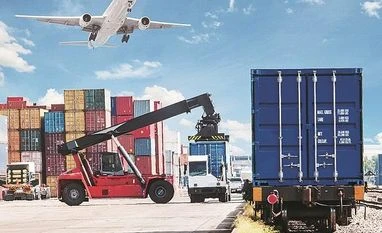India has climbed six places on the World Bank's Logistic Performance Index (LPI) 2023, now ranking 38th in the 139 countries index, as a result of significant investments in both soft and hard infrastructure as well as technology.
India was ranked 44th on the index in 2018 and has now climbed to 38th in the 2023 listing. India's performance has drastically improved from 2014, when it was ranked 54th on the LPI.
Prime Minister Narendra Modi-led government had announced PM Gati Shakti initiative, a National Master Plan for multimodal connectivity, in October 2021 to reduce logistics cost and boost the economy by 2024-25.
In 2022, the prime minister had launched the National Logistics Policy (NLP) to ensure quick last-mile delivery, end transport-related challenges, save time and money of the manufacturing sector and ensure desired speed in the logistics sector.
These policy interventions are fructifying, which can be seen in India's jump in LPI and its other parameters. According to the report, India's rank moved up five places in infrastructure score from 52nd in 2018 to 47th in 2023. It climbed to 22nd spot for international shipments in 2023 from 44th in 2018 and moved four places up to 48th in logistics competence and equality.
In timelines, India witnessed a 17-place jump in rankings, whereas it moved up three places in rank in tracking and tracing to 38th. The report quotes modernisation and digitalisation as a reason for emerging economies, like India, to leapfrog advanced countries.
More From This Section
The report said: Since 2015, Government of India has invested in trade-related soft and hard infrastructure connecting port gateways on both coasts to the economic poles in the hinterland."
Technology has been a critical component of this effort, with implementation under a public-private partnership of a supply chain visibility platform, which contributed to remarkable reductions of delays.
NICDC Logistics Data Services Limited applies radio frequency identification tags to containers and offers consignees end-to-end tracking of their supply chain, it added.
According to the report, the average dwell time for containers between May and October 2022 was three days for India and Singapore, much better than some of the industrialised countries. The dwell time for the US was seven days and for Germany it was 10 days.
The report said: The emerging economies with the shortest delays have gone beyond these packages and have implemented bold tracking and tracing solutions. India's very low dwell time (2.6 days) is one example.
Further the report said: With the introduction of cargo tracking, dwell time in the eastern port of Visakhapatnam fell from 32.4 days in 2015 to 5.3 days in 2019.
Dwell time is how long a vessel spends at a specific port or terminal. It may also refer to the amount of time that a container or cargo spends at a port or terminal before being loaded onto a vessel or after being unloaded from a vessel. Shipping container vessels operate on schedules and delays in any particular port are felt across the service.
The shorter the dwell time, the lower the vessel and marine-terminal operating costs. The LPI covers 139 countries, measures the ease of establishing reliable supply chain connections and the structural factors that make it possible, such as the quality of logistics services, trade and transport-related infrastructure, and border controls.
"End-to-end supply chain digitalisation, especially in emerging economies, is allowing countries to shorten port delays by up to 70 per cent compared to those in developed countries. Moreover, demand for green logistics is rising, with 75 per cent of shippers looking for environment-friendly options when exporting to high-income countries," the report said.
While most time is spent in shipping, the biggest delays occur at seaports, airports, and multimodal facilities. Policies targeting these facilities can help improve reliability," said Christina Wiederer, senior economist, the World Bank group's macroeconomics, trade & investment global practice and the report's co-author.
)